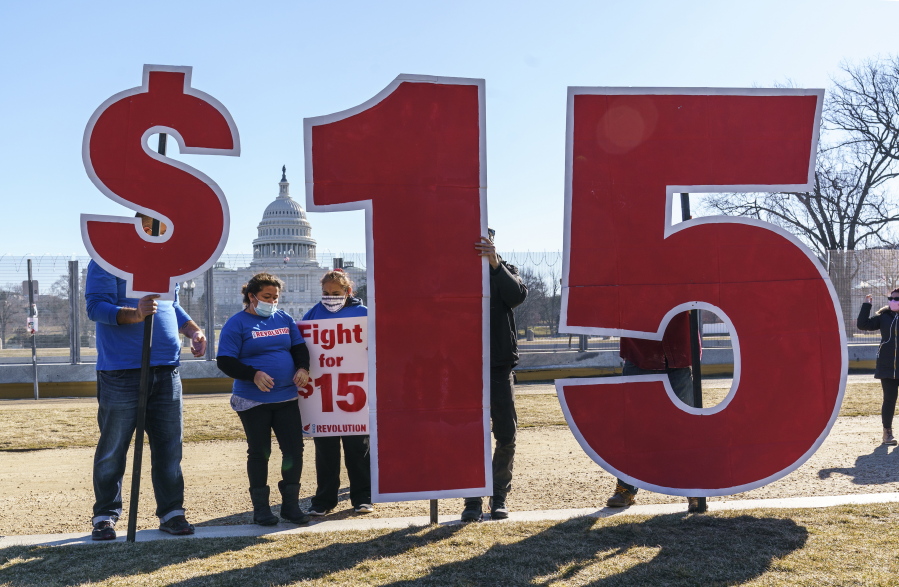WASHINGTON — Democrats’ efforts to include a minimum wage increase in their $1.9 trillion COVID-19 relief bill seemed all but dead Monday as Senate leaders prepared to begin debate on their own version of the House-passed aid package.
Top Democrats abandoned a potential amendment threatening tax increases on big companies that don’t boost workers’ pay to certain levels, Senate aides said. Four days after the chamber’s parliamentarian said Senate rules forbid inclusion of a straight-out minimum wage increase in the relief measure, Democrats seemed to have exhausted their most realistic options for quickly salvaging the pay hike.
“At this moment, we may not have a path, but I hope we can find one” for pushing the federal pay floor to $15 an hour, said No. 2 Senate Democratic leader Richard Durbin of Illinois.
Senate Democrats hope to unveil their version of the broad relief package and begin debate as early as Wednesday. Congressional leaders want to send President Joe Biden the legislation combating the pandemic and bolstering the economy by March 14, the date emergency jobless benefits that lawmakers approved in December expire.
The bill is Biden’s biggest early legislative priority. It looms as an initial test of his ability to unite Democrats in the Senate — where the party has no votes to spare — and risks lasting damage to his influence should he fail. Republicans are strongly against the legislation and could well oppose it unanimously, as House GOP lawmakers did when that chamber approved the bill early Saturday.
Biden discussed the relief bill Monday in a virtual meeting with nine Senate Democrats, including Joe Manchin of West Virginia, an opponent of the $15 hourly target. A White House statement said the group was “united in the goal of quickly passing a significant package that reflects the scope of the challenges our country is facing.”
The Senate is divided 50-50 between the parties, with Vice President Kamala Harris able to cast only tie-breaking votes. Under streamlined rules the Democrats are using, they can approve the legislation with just 51 votes.
The overall bill would provide $1,400 payments to individuals plus hundreds of billions of dollars for schools and colleges, COVID-19 vaccines and testing, mass transit systems, renters and small businesses. It also has money for child care, tax breaks for families with children and states willing to expand Medicaid coverage for low-income residents.
Democrats are considering several changes in the House measure, but they seem modest compared to dropping the minimum wage increase. One top aide said the bill the Senate initially debates won’t have the minimum wage provision in it, saying the language would have pushed the bill over budget-mandated spending limits, violating Senate rules.
Senate Democrats may reshape the $350 billion the bill provides for state and local governments. They also might extend its fresh round of emergency unemployment benefits, which would be $400 weekly, through September instead of August, as the House approved.
The House-approved minimum wage language would gradually raise the federal floor to $15 an hour by 2025, more than double the $7.25 in place since 2009.



